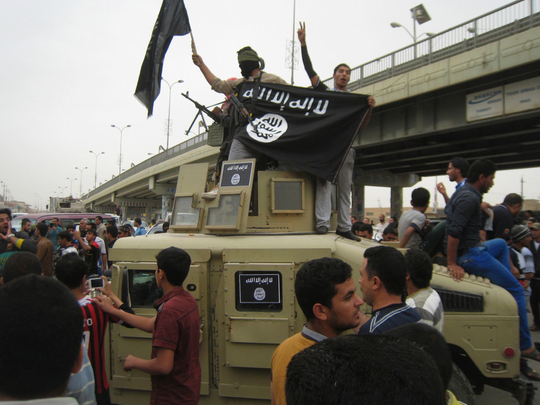
In his book Soft Power: The Means To Success In World Politics published in 2004, Joseph S. Nye Jr., a political science professor and former Dean of the John F. Kennedy School of Government at Harvard University, noted that since the era of the Roman Empire, no power has emerged that could match that of the United States. However, Nye added that the US, as was the case with the Roman Empire, is not invincible or immune from danger. The absence of a superpower threatening the security of the US does not mean it is safe from collapse. The Roman Empire did not fall in a traditional way, like the Sumerians fell to the Akkadians in the 3rd millennium BC or as the Umayyads fell to the Abbasids in the 7th century AD or as the Ottomans fell to Britain early in the 20th century or as the Soviet Union fell to the US during the early 1990s.
The Roman Empire did not fall and disintegrate due to the rise of an empire or another hostile or competing power. It’s fall has attracted much attention from historians, and many theories have been put forward. German historian Alexander Demandt in 1984 collected about 210 different theories about the causes related to the fall of the Romans. A likely theory was presented by the English historian Edward Gibbon in his famous book The History of the Decline and Fall of the Roman Empire, which was published in six volumes between 1776 and 1788. He attributed the fall to the waves of attacks carried out by the Barbarians and to the rise of Christianity.
In this context, one must consider US national security strategy and evaluate the dangers to its security in the political, economic, social and moral dimensions, both in the short and long terms. There is no doubt that the specialists in this regard have spared no effort to identify the various theories about the dynamic development and the rise of empires, their aging process and ruin. What I mean by ‘dangers’ is that which will cause a decline in US leadership in the world and affect its scientific, technological, military and economic superiority.
Risks emanating from climate change
Attacks on the US, whether electronic or terrorist ones, will gradually edge out the influence the country enjoys across the world if it does not find the means to protect itself. Other than that, there are the risks emanating from climate change. But these the US will not be able to tackle alone.
There are two types of electronic attacks on the US. The first is aimed at controlling systems in critical locations to cause chaos and economic losses. The second targets economic data in the financial sector, information technology, aviation, etc. in order to provide better opportunities for foreign, competing companies against American corporations.
These attacks are not new, and do not necessarily come from hostile parties, as they also come from US allies. American officials have pointed an accusing finger towards Russia, China, France and Israel despite the lack of physical evidence, according to the Washington Post. In order to reduce the risk of electronic break-ins, the US is obliged from time to time to increase allocation of funds to strengthen defence of its vital institutions.
America’s ties with its allies have been hit, especially after the publication of documents that point to US monitoring of the personal phone of German Chancellor Angela Merkel or the recently published documents about its spying on three French presidents. On the other hand, Americans have always feared terrorist organisations, especially after the events of 9/11. However, those concerns have receded after years without any major incidents. But these images have returned once again, only more strongly this time since the emergence of Daesh (the self-proclaimed Islamic State of Iraq and the Levant), which has overshadowed Al Qaida. The heinous attacks of this organisation have terrorised the entire world, especially the West.
Accordingly, a lot of financial, military and intelligence resources have gone down the drain, especially in the US, which is leading the war on terrorism. It is also expected that this war will drain additional funds and important sources as it does not have a time limit.
On the other hand, the US administration finds itself in this war in a situation that is not in line with constitutional guarantees of American citizens’ rights, as Washington is resorting to methods of intelligence gathering that affect people’s right to privacy.
Mohammad Akef Jamal is an Iraqi writer based in Dubai.












